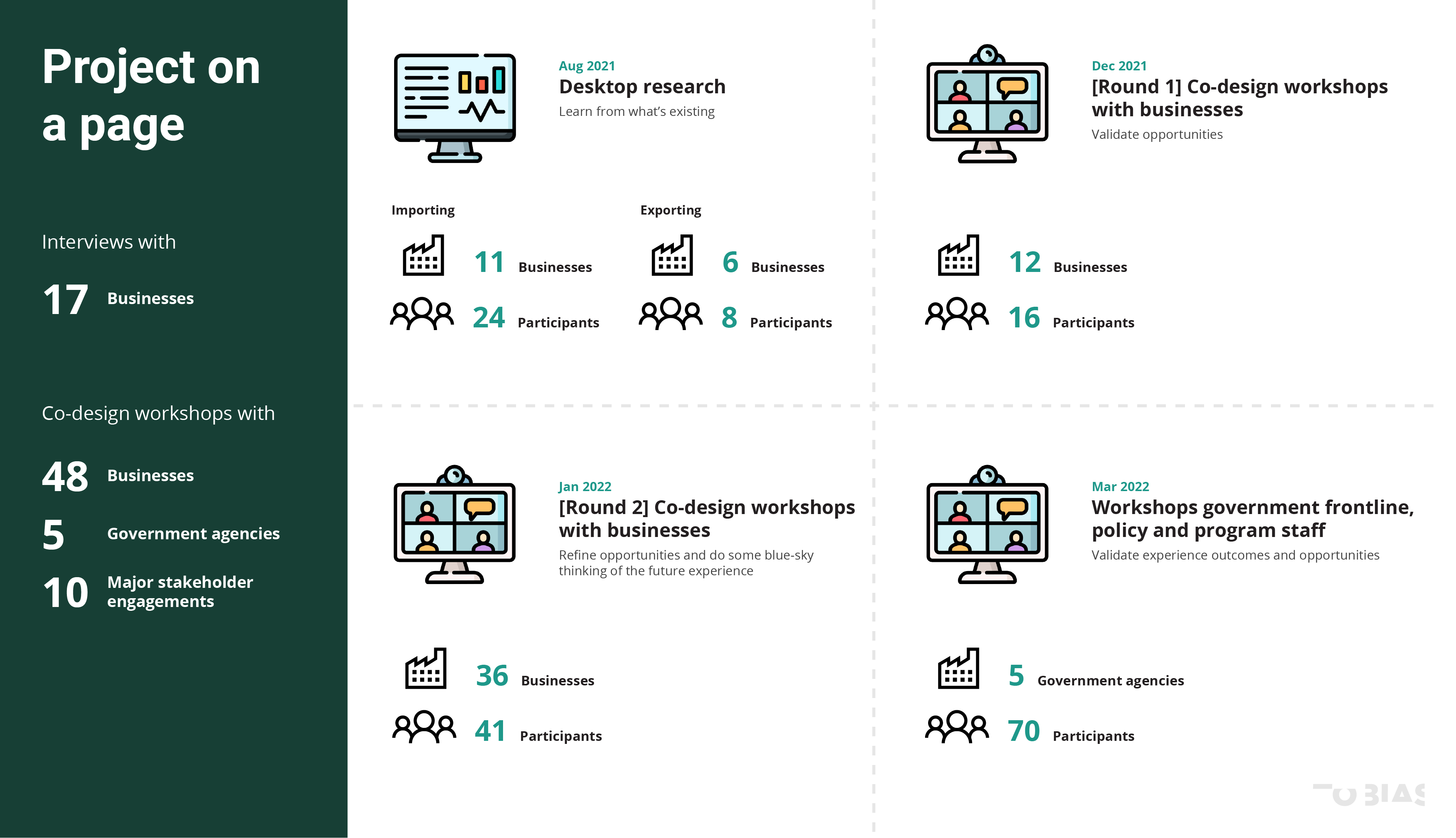Simplifying the cross-border trade experience for businesses to strengthen the Australian economy
Client: Simplified Trade System Implementation Taskforce
Sector: Federal Government

The Simplified Trade System Taskforce (STS) exists to simplify cross border trade for Australian businesses. Tobias worked with the Taskforce to understand the current state experience of businesses and government agencies through design research and in-depth study of Australian trade business and third party providers. The research provided the first whole of government view of the current end-to end trade journey and initial co-design with businesses and that will enable aligned ways of working to a shared mission.
A crucial trade strategy for business and government has resulted from this research by way of a co-design approach that engages key stakeholders in interviews, workshops and showcases. By applying a design led and user centred methodology, the researchers should be acknowledged for demonstrating how design can be deployed for strategy development, and be of value to federal government initiatives. Well done.
Good Designs Award Jury
CHALLENGE:
Australia’s trade competitiveness is lagging. The issues that businesses experience when navigating the Australian trade landscape can be a deterrent for trading across the border. In the wake of a global pandemic and escalating trade tensions now, more than ever, there is a need for individual government agencies to act as one to simplify trade and strengthen the economy.
The Simplified Trade System (STS) Implementation Taskforce engaged Tobias to work with its Experience Research and Design team to understand the current state cross-border trade journey that Australian businesses face today; uncovering pain points and opportunities with a goal to accelerate the work of business and government agencies to deliver whole-of government microeconomic trade reform, delivering value for Australians.
APPROACH:
We used a range of research methods to achieve the depth of insight and scale necessary to not only identify gaps, pain points, needs and opportunities - but also kick start of network effect and movement for change. These included: desktop research, semi-structured depth interviews, contextual enquiry, co-design workshops to scale insights and validate current state plus envision a future state for Australian exporters and those who support them.
Over the course of our design research we engaged with 159 participants across 65 Australian businesses and 5 government agencies:
Discovery - current state
- Desktop research (45 artefacts)
- Interviews with 17 businesses (32 participants)
Co-discovery and co-design
- Future trend meta-analysis
- Two rounds of co-design workshops with 48 businesses (57 participants)
- Co-design workshops with 5 Government agencies (70 participants)
Stakeholder engagement
- 10 major stakeholder engagements (including regular research showcases)

OUTCOME:
Our design approach and research has positioned the government to take a holistic approach to define, prioritise and implement the future state experience of trade with businesses at the heart.
The current state process was communicated through two high fidelity journey maps which showed typical importing and exporting experiences for Australian businesses. The maps are almost 10 metres long each when printed, revealing the complexity, diversity and high number of touch-points associated with a current trade experience. These maps have been used as tools to build empathy and buy-in with relevant government agencies, and kick start a network effect and movement for change.
Areas across the trade journey most impacted by complex and outdated regulatory and technological burdens have been identified and opportunities for whole-of-government solution design defined. Experience outcomes for stepped-change to transformation exist, and concept development of opportunities is underway.
Our research has established a shared understanding of the benefits of working collectively towards implementable outcomes of a modern, adaptive, resilient trade system.